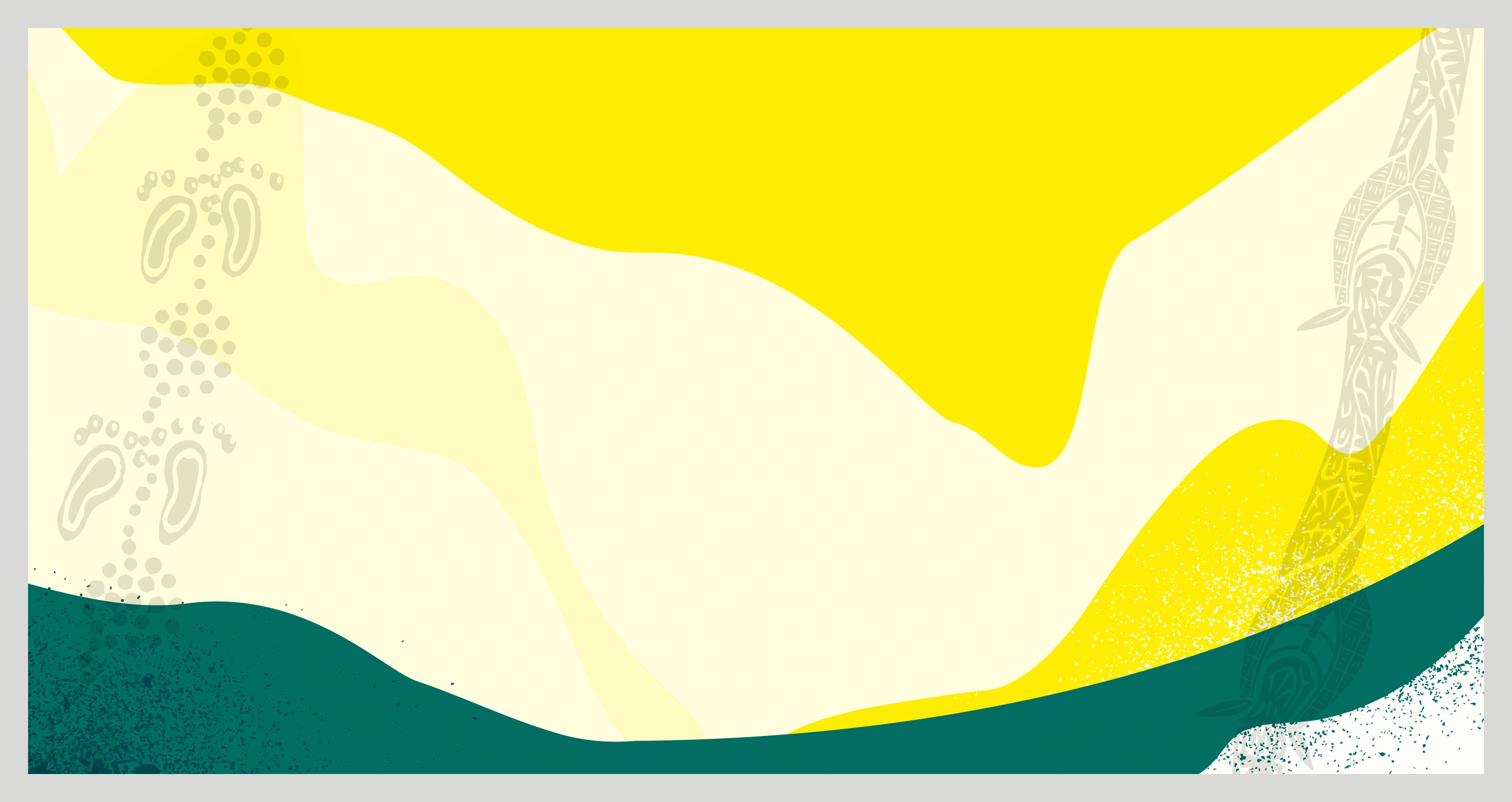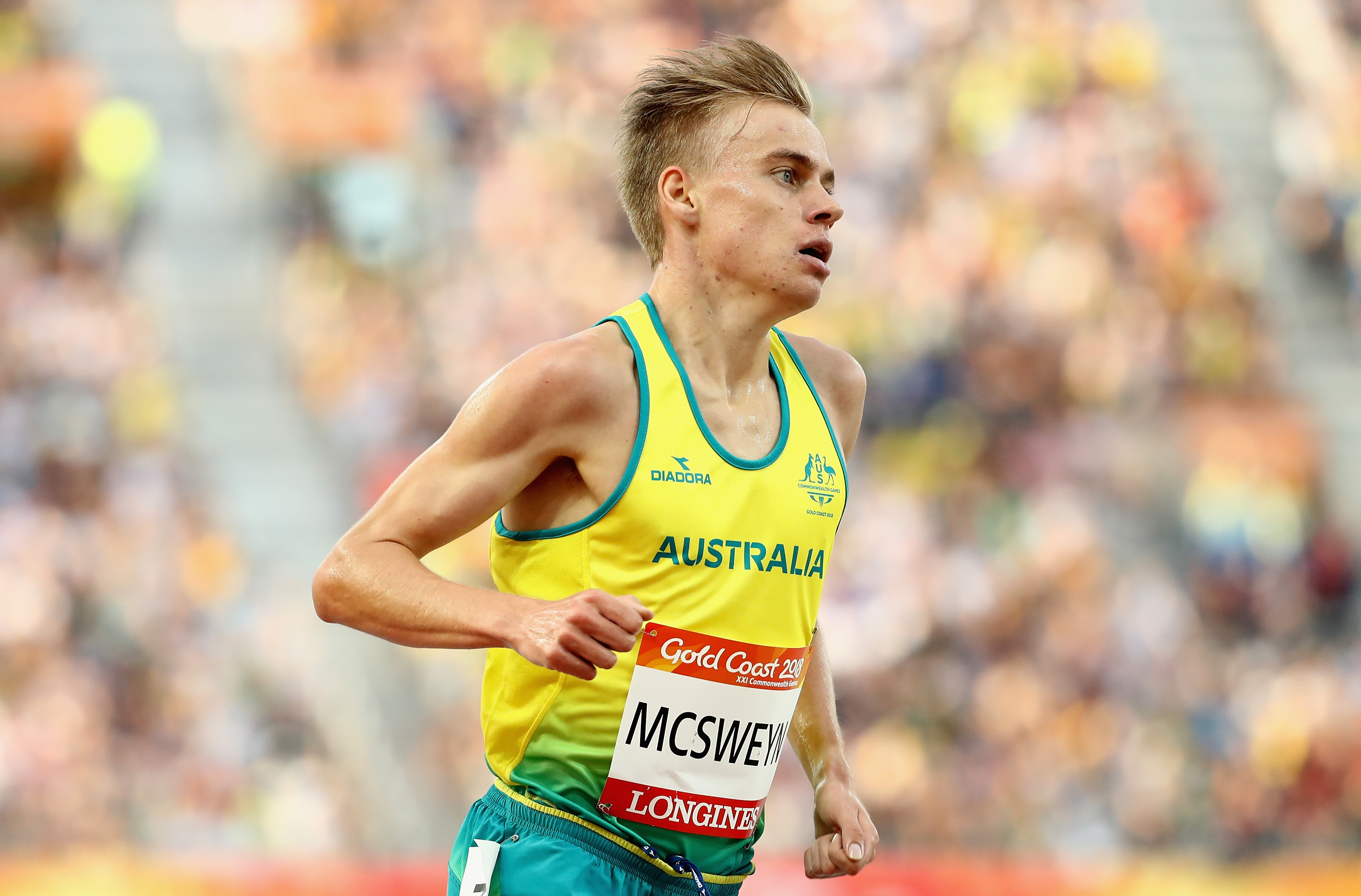
HAVE A GO AT OLYMPIC SPORTS
HAVE A GO AT OLYMPIC SPORTS


Age
29
Place of Birth
Launceston, TAS
Hometown
King Island, TAS
Junior Club
Eureka Athletics Club
Senior Club
UTAS Athletics club
Coach
Nic Bideau
Olympic History
Tokyo 2020
Paris 2024
High School
Ballarat Clarendon College
Career Events
Athletics Men's 1500m
Athletics Men's 5000m
Stewart McSweyn grew up on a beef and sheep farm on King Island (population 1600) in the middle of Bass Strait, south of Melbourne.
His childhood was idyllic, active, with a twin brother to do things with. They had a nearby beach and golf course and would help on the farm, chasing cattle or rounding up sheep. It was relaxed, sheltered and all outdoors.
Being away from home at school at a young age, Stewart built some resilience that now helps him cope with being overseas for about five months a year.
Up to 14 years old he played cricket, tennis and AFL, but then decided to concentrate on athletics.
He had some strong athletics influences and role models in Ballarat – coach Rod Griffin and distance greats Collis Birmingham and now training partner Brett Robinson.
Most teenage years he would make nationals and occasionally won a medal. Stewart represented Australia at the 2013 World Cross Country Championships in the junior race and two years later at the World University Games in the 5000m, but it would be 2016 when he started to emerge from the pack.
University was his focus, but his coach Nic Bideau saw potential in him and spoke to him about taking training more seriously.
Steeplechase was Stewart’s best event, but over the next few years his extraordinary range grew and times dropped to where he is now the fastest-ever Australian at 10,000m and second-fastest at 1500m, 3000m and 5000m.
In some of those events, Stewart sits behind Craig Mottram, whom he remembers running an epic 5000m at the 2006 Commonwealth Games, the same event he would run 12 years later on the Gold Coast.
Stewart’s progression during this period was also due to training with a very elite squad who pushed and encouraged each other.
At several major championships, Stewart has competed in up to four different events.
At the 2017 world championships he raced the steeplechase, at the 2018 Gold Coast Commonwealth Games he lined up in the 5000m and 10,000m.
In 2019, he ran in the 1500m and 5000m at the world championships in Doha, where he also had the opportunity to be involved in a special piece of history as one of 40 pace runners assisting Eliud Kipchoge to become the first sub-two-hour marathoner.
The enormously talented athlete qualified for the Tokyo Olympics in three events – 1500m, 5000m and 10,000m.
Going from strength to strength, Stewart improved once again in 2021 as he continued to redefine the standard of Australian distance running. After opening the year with a 13:05 5000m in March 2021 and a second in the national 1500m title behind Jye Edwards, he went on a 15-race campaign in the northern hemisphere.
Prior to the Tokyo Olympics he blitzed the Australian mile record when running 3:48.37 to win the Dream Mile in Oslo, before one week later becoming the first Australian man to break 3:30 in the 1500m – clocking 3:29.51. It was almost a hat-trick of records for Stewart when he lined up over 3000m, recording a time of 7:28.94 in his final hit-out prior to the Olympics.
In Tokyo he finished seventh in the 1500m, running a best of 3:31.91 in the final.
Illness largely effected Stewart in 2022, initially an inflammation around the heart, after getting a vaccine booster too soon after having COVID. He recovered to place a competitive ninth in the 1500m at the world championships in Eugene, Oregon, before succumbing to flu ahead of the Birmingham Commonwealth Games, forcing him to withdraw.

Stewart kicked off his usual 2022-23 summer campaign with a couple of mile handicap races in the Tasmanian Christmas carnivals series, then in February, despite not being 100 per cent, he put down a great leg for Australia in the mixed 4x2km race at the World Athletics cross country at Bathurst, helping the team to the bronze medal – his first global medal.
“We wear the guernsey with pride and we all executed good races,” Stewart said. “To compete with the powerhouses of Ethiopia and Kenya hopefully puts Australia on the map and shows that we are part of the big-three of distance running now.”
After the world cross country championships in February, he battled a right foot problem for a while over summer. Trouble continued in May and June with Stewart not starting and not finishing in a number of Diamond League meets. But by later June he was back with a solid 3:32.85 1500m in Lausanne, followed by 3:31.42 in London on July 23.

Selected for the world championships in Budapest, he raced in the 1500m heats, before progressing into the 5000m final to place 13th. In October he competed at the World Road Running Championships, placing 19th in the 5000m.
Domestically in 2024, he won the mile at the Maurie Plant Meet, defeating 2022 world champion Jake Wightman and rising star teenager Cameron Myers. In April, Stewart was fourth in a high-quality national 1500m championship, then in May in America he missed the Australian 5000m record by 0.31 seconds, clocking an Olympic qualifying time of 12:56.07.



Want to have a go at Athletics, or find the nearest club to you?
The Australian Olympic Committee acknowledges Aboriginal and Torres Strait Islander peoples of this nation.
We acknowledge the Traditional Custodians of all the lands on which we are located. We pay our respects to ancestors and Elders, past and present.
We celebrate and honour all of our Aboriginal and Torres Strait Islander Olympians.
The Australian Olympic Committee is committed to honouring Aboriginal and Torres Strait Islander peoples’ unique cultural and spiritual relationships to the land, waters and seas and their rich contribution to society and sport.
We and our partners use cookies and other tracking technologies to manage our website, understand and track how you interact with us and offer you more personalized content and advertisement in accordance with our Cookies Policy. By clicking "Accept All Cookies" you agree to such cookies, which are being implemented by the International Olympic Committee ("IOC") in accordance with the IOC's Privacy Policy and the IOC Cookies Policy. Otherwise and if you wish to learn more about our use of cookies click here.
Show more